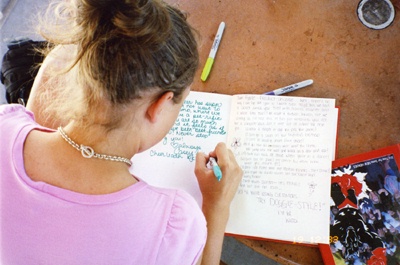All Nonfiction
- Bullying
- Books
- Academic
- Author Interviews
- Celebrity interviews
- College Articles
- College Essays
- Educator of the Year
- Heroes
- Interviews
- Memoir
- Personal Experience
- Sports
- Travel & Culture
All Opinions
- Bullying
- Current Events / Politics
- Discrimination
- Drugs / Alcohol / Smoking
- Entertainment / Celebrities
- Environment
- Love / Relationships
- Movies / Music / TV
- Pop Culture / Trends
- School / College
- Social Issues / Civics
- Spirituality / Religion
- Sports / Hobbies
All Hot Topics
- Bullying
- Community Service
- Environment
- Health
- Letters to the Editor
- Pride & Prejudice
- What Matters
- Back
Summer Guide
- Program Links
- Program Reviews
- Back
College Guide
- College Links
- College Reviews
- College Essays
- College Articles
- Back
The Changing World
The world we live in is always changing. Technologies and ideas are quickly advancing and becoming obsolete to keep with the changing lives of the humans that are using these everyday factors. Technology and ideas are not the only thing changing in the world today because the ways in which people interact and live their lives are morphing into something new as well. People have always been shifting the way that they interact to fit their milieu as a defense mechanism to not seem like the odd one out. Most people don’t even notice the change but over time, the language of the people is always changing with the world around them to either help the understanding of certain situations or to make things easier to say while still getting the point across.
Certain words are now being introduced to the English language that have been able to add a certain emphasis to the way we speak. These words are seen as “youth slang” by many adults of the past generations because this new vocabulary is used predominately by younger persons. In “txting is killing language! JK!” John McWhorter talks about new words such as lol, haha, slash, and btw that younger people tend to use when texting in everyday communication. Words such as “lol” and “haha” he called “pragmatic particles” and they are used just to accentuate sentences to give them a certain mood. But people of older generations do not use these sort of terms because they are just being developed and added to the English language.
In “Mother Tongue” by Amy Tan, she describes how she talks in certain ways to certain people. This is just a mechanism made by her brain to whatever makes things easiest to communicate. Even when talking to her mom, she speaks in a broken English because it’s the easiest way to speak with her mom. This shows that humans will adapt to the language around them and use the easiest form of the language to communicate. So when new, easier styles are being introduced, humans will automatically start using these methods to speak with each other.
Language is always changing. With the fast-paced world of the present, language takes the mold of the people using it. So as new generations start to take shape, they bring all sorts of new facets of language to the public that change the language forever. So as the everyday life of the average human changes, so does the language that they use to communicate.

Similar Articles
JOIN THE DISCUSSION
This article has 0 comments.
